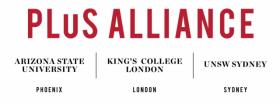Deciphering Health: Knowledge, visibility and 'precision' in 21st century medicine

Deciphering Health Knowledge, visibility and 'precision' in 21st century medicine
Join us for joint public lectures by two of the world’s leading scholars in the social study of health, Professor Judith Green (School of Population Health & Environmental Sciences, King’s College London) and Professor Barbara Prainsack (Professor at the Department of Political Science at the University of Vienna, and Department of Global Health and Social Medicine at King’s College London).
These public lectures, chaired by Scientia Professor Alex Broom, will be followed at 6 pm by a wine and cheese reception, and a photographic exhibit from a recent ARC Discovery Project entitled ‘Picturing Cancer Survivorship’, the exhibit provides a glimpse into life with cancer through the eyes of those who have lived it.
On not-knowing: some implications of public and patient ‘ignorance’ in health
Judith Green
Contemporary health policy acts upon knowledgeable and empowered consumers in neoliberal markets; emancipatory health movements have been, and continue to be, built on claims for the democratisation of knowledge. Such framings problematise ‘not-knowing' as democratic deficit, or as the result of strategic constructions of ignorance and uncertainty. Yet knowledge and ignorance are not symmetrical: ignorance is not simply the absence of knowledge. Not-knowing can be functional, resistant, salutogenic, disruptive or imaginative. Taking examples from research on how patients, and wider publics, engage (or not) with knowledge around topics such as food labelling, street lighting, taking statins and choosing hospitals, this paper explores how provocations ‘to know’ oblige particular relationships between citizens or patients and the State or experts. They simultaneously marginalise or erase other possible relationships, such as those of trust, dependency or care. Enactments of not-knowing create spaces for alternative visions of citizenship and patienthood. These include nostalgic evocations of dependent relationships, but also evocations alternative knowledges, and alternative knowledge bearers, such as collectivities. As the relations between expertise and publics come under increasing scrutiny, this is a useful point to unpack what we can learn from ‘not-knowing’ about health.
Untargeted: What “Precision Medicine” sees (and why)
Barbara Prainsack
The paradigmatic example of Personalised Medicine in the 2000s was the matching of drug treatments to genetic markers of patients. Contemporary visions of personalisation seek to use much wider ranges of data, including molecular, clinical, and behavioural data, to make healthcare more “precise”. They also seek to overcome the fragmented focus on specific data types, organs, or (symptom-based) disease groups and move to a systemic and unified understanding of human health and disease. Henrik Vogt and colleagues called Precision Medicine a new form of "techno-scientific holism" that seeks to capture as many data about people’s lives and bodies as possible, not only when people are sick, but also when they are healthy. The notion of “disease interception” expresses the same vision of human beings as bodies of data into which past and future diseases are already inscribed - and can be read if one knows how to capture analyse the data. In my talk, I will tell a different story by focusing on what Precision Medicine cannot see - ranging from missing data about populations to aspects of people’s bodies and lives that remain invisible.
Back to top
Archive
- February
- March
- April
- May
- June
- July
- August
- September
- The complex lives of glia after...
- Randwick Precinct Initiating Early...
- Randwick Precinct Cancer Genomics...
- What are the mechanisms behind...
- Congratulations to new Associate...
- Medicine Learning L&T Forum
- Revolution in Breast Cancer -...
- The Split Personality of Glutamate...
- Lowy Cancer Research Centre...
- Cancer Metabolism roundtable
- Single Cell Epigenomics for...
- October
- November
